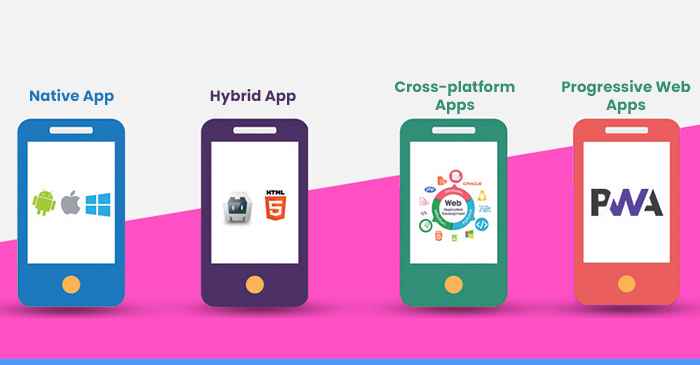
Recently, e-commerce mobile app development has increased exponentially due to the growing use of mobile devices. There is room between the massive rise of the mobile application industry and the e-commerce industry. Businesses can react to developing opportunities that may lead to advancement and independence. Companies and brands have been forced to use apps to reach and engage their target audience due to the inherent convenience of using a mobile device.
One cannot deny that the development of the internet, mobile technology, including smartphones and tablets including smartphones and tablets, and e-commerce apps, has profoundly changed how individuals conduct business, gather information, communicate, and enjoy leisure time while traveling. The industry is anticipated to reach a market size of $16215.6 billion by 2027. This number is the reflection of the e-commerce industry’s growth.
Read more: E-Commerce Landing Pages: A Guide That Can Help You
What Is an E-Commerce Mobile App?

You need to understand what an e-commerce mobile app development is before you can learn how to make one. A mobile e-commerce app allows users to buy or sell products with just a few taps on their smartphones. E-commerce has been one of the most well-liked business models in recent years. It can be used to describe a variety of services in addition to the sale of commodities. As a result, new possibilities are emerging for many business types.
Companies are driven to adopt an innovative strategy by the intensifying competition in the global market to deliver a pleasant customer experience, specifically, to create mobile apps for setting up mobile sales channels. These efficient e-commerce solutions should incorporate diverse functions without restricting customers to one “add to basket” option. Such systems should also enable one-click transaction completion, while e-commerce apps appeal to customers and promote repeat transactions.
Things to Consider for E-Commerce Mobile App Development
The following aspects should be considered before developing an e-commerce app:
What Is Mobile App Development?
Building an e-commerce app is a multidimensional process that involves a lot of time, effort, and resources to succeed. There are numerous methods for developing software, including waterfall, agile, DevOps, and rapid application. The e-commerce mobile app development sector is going through a transformation. The user can execute mobile applications on various platforms thanks to revolutionary micro-processing technology advancements. For instance, in the near future, mobile apps will also run without issue on PCs.
What Are the Types of Mobile Apps?

1. Native Apps
These programs are made specifically for platforms like iOS or Android. These operating systems support the programming languages used to construct the apps.
2. Cross-platform Apps
Different programming languages can be used to create cross-platform mobile apps, which are then individually compiled for each device.
3. Hybrid Apps
Hybrid apps can typically include HTML apps by employing container design. Hybrid apps provide enhanced operations of special elements and are built in the native environment.
4. Progressive Web Apps
The software kept on a remote server and distributed through the internet using a browser interface is known as a Web application (Web app).
What Are the Types of E-Commerce Mobile App Development?
1. E-commerce Aggregator Apps
These programs create seamless connections between service providers and customers. These websites are frequently used by users who want to find producers and then connect with them to buy products.
2. B2B E-commerce Apps
These apps link companies that operate in related industries together to exchange goods. Alibaba and Boodmo both provide examples of this type of e-commerce app.
3. B2C E-commerce Apps
These are a few of the industry’s most typical applications. The applications for Amazon and Zara are good examples of how they make it simple for customers to purchase goods from online vendors.
4. C2C E-commerce Apps
The architecture of these applications is designed to make it easier for end users to buy from and sell to one another. These apps make it simple for users to trade in customized goods and are typically utilized by home-based business owners.
5. C2B E-commerce Apps
In this kind of application, customers offer their services to companies. Unlike models that are centered on products, this one is entirely service-oriented. Upwork and Freelancer are two examples of these mobile e-commerce app advancements.
What Are the Technology Integrations for E-Commerce Mobile App Development?
1. Internet of Things
IoT adoption in the development of mobile e-commerce is typically found in product manufacturing. It is all aided by improved order fulfillment tracking, automated shipping and delivery, and optimum earning potential through omnichannel customer experience.
2. Blockchain
Blockchain technology can improve security thanks to distributed ledger technology, improve supply chain visibility because of smart contracts, speed up transactions, and do away with mediators.
3. Artificial Intelligence
The use of data and the user experience often overlap, where AI plays a part in creating e-commerce apps. It makes an intuitive search system, individualized client targeting, effective lead generation procedures, and fully customized chat support in the app.
4. Augmented Reality/Virtual Reality
Real-world simulation is supported by AR and VR, which allow online shoppers to inspect things from the comfort of their homes before making a purchase. In a significant way, this improves the graph of customer experience.
What Are the Must-Have Features for E-Commerce Mobile App Development?
1. Easy Registration
Building a simple sign-up and sign-in process is the first step in creating an e-commerce app. The process often starts with logging in using your email address, user name, or phone number. A multi-factor authentication system, such as fingerprint scanning, may also be helpful.
2. Profile Management
Creating a user profile where users can view prior purchases, the status of pending orders, saved addresses, and payment information is essential for e-commerce mobile app development.
3. Search & Filter
This is one of the most important characteristics in achieving a high and better user experience. At Arturo Digital, we urge all of our clients to use a search and filter system that is AI-based.
4. Product Details
This section of the e-commerce mobile app development examines the product specifications, such as the name, details, price, shipping, ratings, reviews, and possible delivery date.
5. Add to Cart
The add-to-cart feature is the next essential component for any e-commerce project. Users can utilize the function to save things they like and purchase them later. The best way to use this facility is to make it omnichannel-friendly, which means that no matter what device your users use to access your e-commerce app, the cart details should duplicate without any issues.
6. Buy the Product
A simple checkout sequence with an option to remember the payment options, autofill form fields, and transparency on the timescales for product delivery is one method to ensure it goes smoothly.
7. Order Tracking
After the customer purchases the item, the app should provide tracking information on how the purchase is moving and the estimated delivery date.
8. Push Notifications
It is one of the most important elements for an e-commerce mobile app development. It should be used to notify customers when a product has shipped or is on its way to them, for sending timely reminders about sales, new product releases, and other events.
9. Customer Support
Customer support features are a must-have e-commerce mobile app development feature. It is built on using automated chat and live support. It should be convenient for users to connect with the staff when they need assistance.
Conclusion
Despite the e-commerce industry’s rapid growth, the domain remains a lucrative shelter for business owners and investors. This is the right moment for entrepreneurs to venture into this space, especially given the vast user base it is accumulating and the ongoing technical improvements. We hope that this guide has given you a solid foundation for understanding what goes into building an e-commerce app. Reach out to Arturo Digital if you want to learn more about mobile and web app development for the e-commerce industry and strategies to achieve a competitive advantage in the market.
See more: Mobile App Development for Small Businesses: Key Benefits